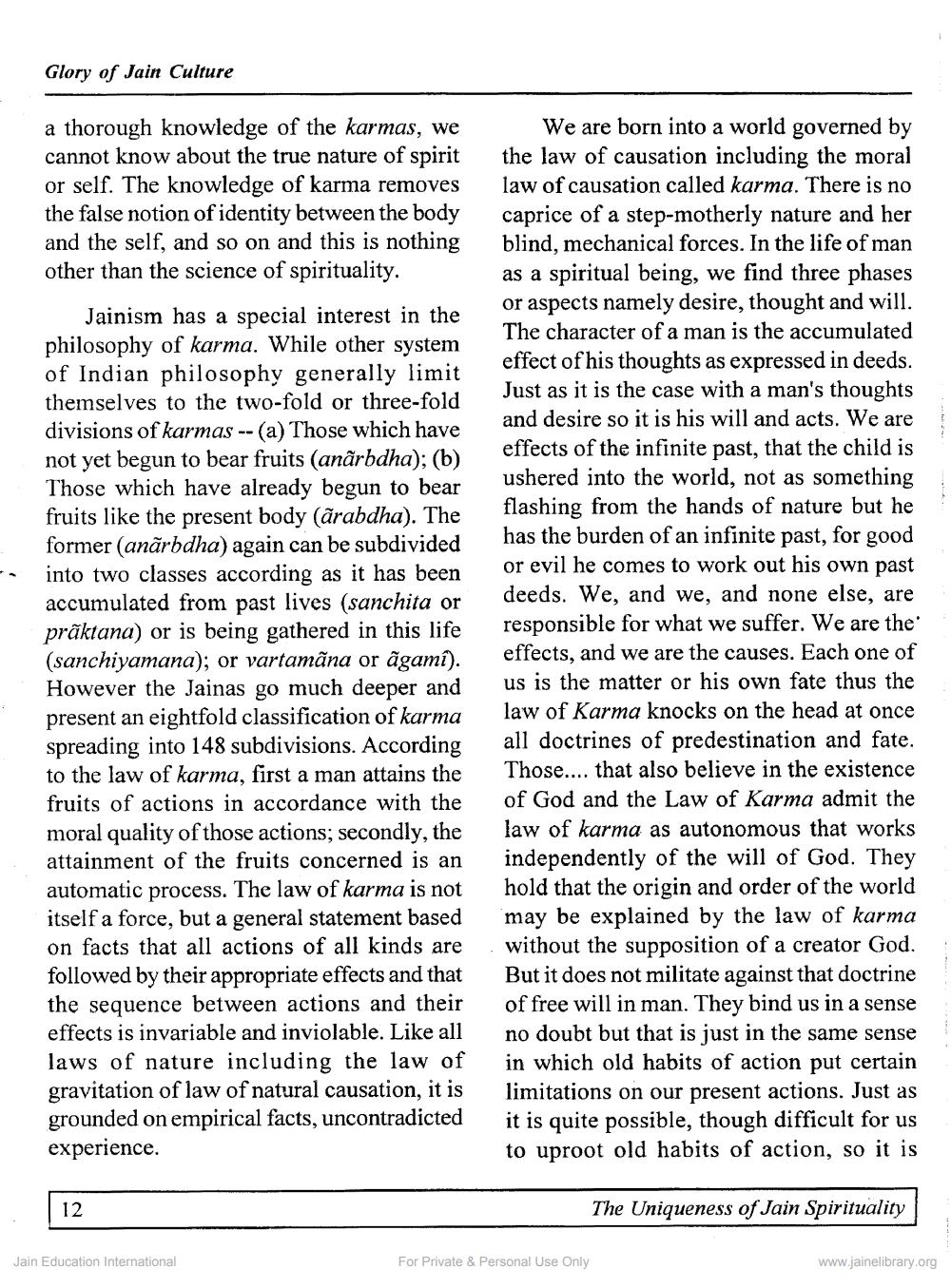Book Title: Uniqueness of jain Spirituality Author(s): Ramjee Singh Publisher: Z_Sumanmuni_Padmamaharshi_Granth_012027.pdf View full book textPage 4
________________ Glory of Jain Culture a thorough knowledge of the karmas, we cannot know about the true nature of spirit or self. The knowledge of karma removes the false notion of identity between the body and the self, and so on and this is nothing other than the science of spirituality. Jainism has a special interest in the philosophy of karma. While other system of Indian philosophy generally limit themselves to the two-fold or three-fold divisions of karmas -- (a) Those which have not yet begun to bear fruits (anãrbdha); (b) Those which have already begun to bear fruits like the present body (ārabdha). The former (anărbdha) again can be subdivided into two classes according as it has been accumulated from past lives (sanchita or prāktana) or is being gathered in this life (sanchiyamana); or vartamâna or ãgami) However the Jainas go much deeper and present an eightfold classification of karma spreading into 148 subdivisions. According to the law of karma, first a man attains the fruits of actions in accordance with the moral quality of those actions; secondly, the attainment of the fruits concerned is an automatic process. The law of karma is not itself a force, but a general statement based on facts that all actions of all kinds are followed by their appropriate effects and that the sequence between actions and their effects is invariable and inviolable. Like all laws of nature including the law of gravitation of law of natural causation, it is grounded on empirical facts, uncontradicted experience. We are born into a world governed by the law of causation including the moral law of causation called karma. There is no caprice of a step-motherly nature and her blind, mechanical forces. In the life of man as a spiritual being, we find three phases or aspects namely desire, thought and will. The character of a man is the accumulated effect of his thoughts as expressed in deeds. Just as it is the case with a man's thoughts and desire so it is his will and acts. We are effects of the infinite past, that the child is ushered into the world, not as something flashing from the hands of nature but he has the burden of an infinite past, for good or evil he comes to work out his own past deeds. We, and we, and none else, are responsible for what we suffer. We are the effects, and we are the causes. Each one of us is the matter or his own fate thus the law of Karma knocks on the head at once all doctrines of predestination and fate. Those.... that also believe in the existence of God and the Law of Karma admit the law of karma as autonomous that works independently of the will of God. They hold that the origin and order of the world may be explained by the law of karma without the supposition of a creator God. But it does not militate against that doctrine of free will in man. They bind us in a sense no doubt but that is just in the same sense in which old habits of action put certain limitations on our present actions. Just as it is quite possible, though difficult for us to uproot old habits of action, so it is 12 The Uniqueness of Jain Spirituality Jain Education International For Private & Personal Use Only www.jainelibrary.orgPage Navigation
1 2 3 4 5 6 7 8
